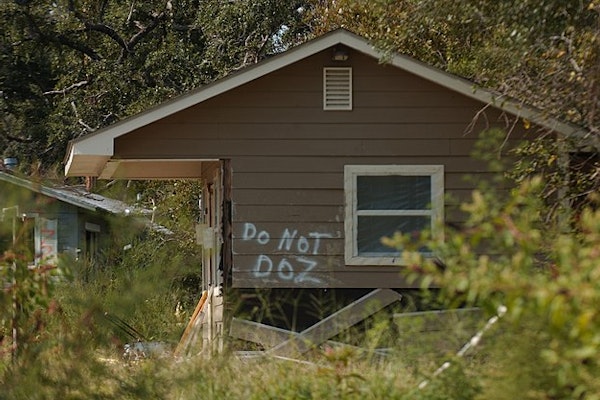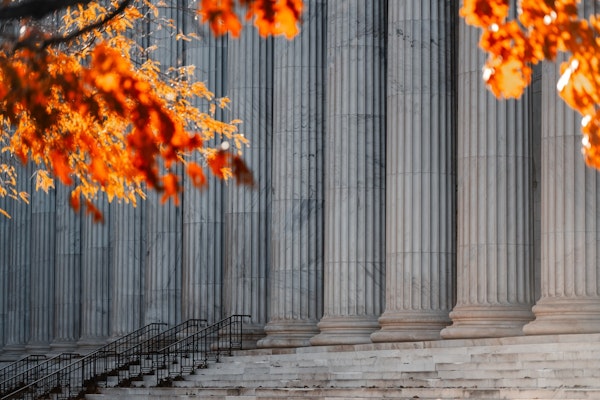
Insurer Found Vicariously Liable for Adjuster Selling Client Information
B.C.’s public auto insurer has been held vicariously liable for a privacy breach, in which one of its claims adjusters sold client information to a third party that ultimately led to arson and shooting attacks.
August 29, 2022
Liability

Blue Bell’s Carriers Do Not Have to Pay for Listeria Outbreak Damages
Federal Judge Robert Pitman, who presided over the 15-day mistrial of Blue Bell’s former president, has ruled in another case involving the Brenham, TX-based creamery. From his Western District of Texas federal court bench, Pitman granted the motion for a summary judgment favoring two insurance companies over Blue Bell Creameries USA Inc.
August 29, 2022
Liability
Litigation
Texas

New Jersey City Achieved Zero Traffic Deaths With Quick, High Impact Ideas
In January 2019, Sarah Risser was in the passenger seat as her son, Henry Zietlow, drove them from Minnesota to Michigan for a ski trip. They were on a Wisconsin highway when an oncoming pickup towing too much weight veered into their lane.
August 26, 2022
Auto
Liability
New Jersey

Another One Bites The Dust: United P&C To Quit Florida, Louisiana, Texas And NY Homeowners Markets
St. Petersburg-based United Property & Casualty Insurance (United P&C) has filed plans to withdraw operations in Florida, Louisiana and Texas and intends to file a plan of withdrawal in New York, its parent company United Insurance Holdings Corp. (UPC) announced Thursday.
August 26, 2022
Insurance Industry
Liability
Property
Florida
Louisiana
New York
Texas

Former Adjusters’ Whistleblower Lawsuit Against State Farm Settled For $100M
State Farm Fire and Casualty Co. has agreed to pay the federal government $100 million for potential liability over its handling of flood insurance claims after Hurricane Katrina, settling a lawsuit that two whistleblowers filed against the company more than 16 years ago.
August 25, 2022
Catastrophe
Fraud
Liability
Litigation
Mississippi

Brinks Heist Lawsuit: Jewelry Underinsured, Driver Asleep
Last month, thieves stole millions of dollars’ worth of jewelry from a Brink’s tractor-trailer in a late-night heist, and according to a new lawsuit filed by the security company, one of the drivers was asleep inside the vehicle during the robbery.
August 24, 2022
Liability
Litigation
California

Sixth Circuit Finds Unregistered Security Exclusion Bars Professional Liability Claim
In Saoud v. Everest Indemnity Insurance Co., the Sixth Circuit Court of Appeals held that an ‘unregistered security exclusion’ barred coverage for various underlying lawsuits under a professional liability policy.
August 23, 2022
Liability
Litigation
Michigan

One Flood-Ravaged Kentucky Community Is Suing A Coal Company, Saying Its Negligence Made Damage Even Worse
Families along Upper River Caney and Lower River Caney roads recall how the floodwaters that rushed through their narrow hollow turned from a muddy brown to a charcoal gray late last month.
August 23, 2022
Liability
Litigation
Kentucky

Preventing Bad Faith Train Wrecks
Much of the law surrounding extra-contractual or bad faith liability for insurance carriers centers on whether the insurer has properly discharged its duties to its insured early in a claim, such as by agreeing to defend the insured in a newly filed lawsuit.
August 22, 2022
Liability
Litigation

Product Liability: $1.7B Verdict Against Ford Motor Company
A Gwinnett County jury unanimously imposed a $1.7 billion verdict, the largest in state history, against Ford Motor Co. on Friday in a wrongful death lawsuit stemming from a 2014 rollover crash that killed a Middle Georgia couple.
August 22, 2022
Auto
Liability
Litigation
Georgia

Lawsuit Alleges Utility Company Is Responsible For Deadly McKinney Fire
Residents in the McKinney fire burn area sued PacifiCorp this week, alleging that sparks from the utility’s high-voltage transmission lines and other equipment ignited the deadly blaze last month near the California-Oregon border.
August 22, 2022
Liability
Litigation
California

Bad Faith Claims Against Insurers On The Rise
It appears that there is a growing trend throughout the United States that is reducing barriers and making it easier for insureds to establish their bad faith claims against their insurers, thereby expanding the scope of an insurer’s potential exposure to claims of bad faith.
August 19, 2022
Liability
Litigation

What Can We Do About Social Inflation?
Social inflation, or the rise of insurers’ costs to cover claims above general economic inflation, is a growing threat to insurance affordability. The struggle to quantify social inflation’s causes is one reason policymakers have yet to reduce its impact.
August 19, 2022
Insurance Industry
Liability
Litigation

Layers Of Liability
Verdict amounts across the country are on the rise, due in part to the phenomenon of social inflation and the success of reptile theory-style arguments. An insurer’s potential extra-contractual liability for these verdicts and related damages continues to substantially increase a carrier’s exposure in litigation.
August 16, 2022
Liability

Climate Change Lawsuit: Product Hazard Coverage Or Pollution Exclusion?
Aloha Petroleum, a subsidiary of oil and gas giant Sunoco, has sued an AIG unit, accusing the insurer of breaching insurance contracts by refusing to defend it in a pair of lawsuits filed by the Hawaiian government alleging that the gas chain contributed to climate change.
August 15, 2022
Liability
Litigation
Hawaii





